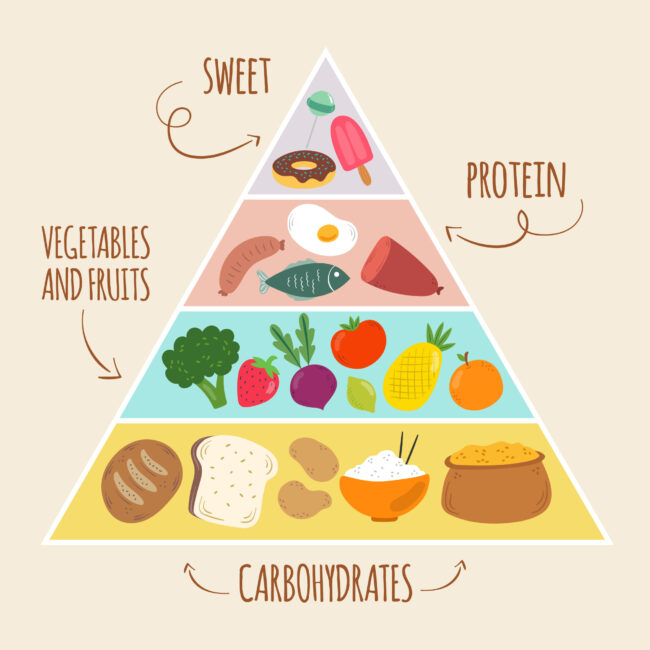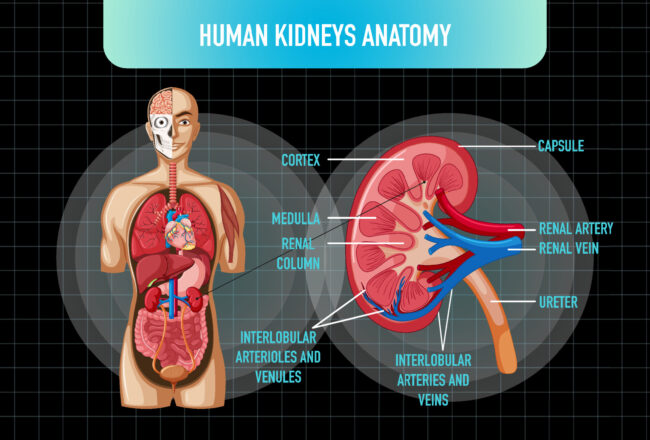Diabetes is a chronic condition that affects millions of people worldwide. It can lead to various complications, one of the most serious being kidney disease, also known as diabetic nephropathy. Managing diabetes through dietary strategies is crucial not only for controlling blood sugar levels but also for protecting kidney health. This article will explore comprehensive dietary approaches that can help safeguard kidney function in diabetic patients, emphasizing the importance of nutrition in preventing and managing diabetic nephropathy.
Understanding Diabetic Nephropathy
Diabetic nephropathy is a type of kidney disease that occurs in people with diabetes. It is characterized by damage to the kidney’s filtering units, called glomeruli, which leads to progressive kidney dysfunction. High blood sugar levels over time damage these delicate structures, reducing their ability to filter waste from the blood effectively. If left unmanaged, diabetic nephropathy can progress to end-stage renal disease (ESRD), necessitating dialysis or kidney transplantation.
The progression of diabetic nephropathy is influenced by several factors, including the duration of diabetes, blood sugar control, blood pressure levels, and genetic predisposition. However, diet plays a pivotal role in managing these factors and protecting kidney health.
The Role of Nutrition in Kidney Protection
Nutrition is a cornerstone of diabetes management and kidney protection. A well-balanced diet can help control blood sugar levels, reduce blood pressure, and decrease the workload on the kidneys. The following dietary strategies are particularly beneficial for protecting kidney health in diabetic patients:
- Glycemic Control
Maintaining stable blood sugar levels is essential for preventing and managing diabetic nephropathy. High blood sugar levels can damage the kidneys over time. To achieve good glycemic control, diabetic patients should focus on the following dietary principles:

- Carbohydrate Counting: Monitoring carbohydrate intake helps regulate blood sugar levels. Patients should be educated on how to count carbohydrates and choose complex carbohydrates that have a lower glycemic index, such as whole grains, vegetables, and legumes.
- Portion Control: Eating smaller, more frequent meals can help maintain steady blood sugar levels and prevent spikes.
- Low Glycemic Index Foods: Foods with a low glycemic index, such as non-starchy vegetables, legumes, and certain fruits, cause a slower rise in blood sugar levels and are preferable for diabetic patients.
- Protein Intake
Protein is essential for the body, but excessive protein intake can strain the kidneys. Diabetic patients should consume an appropriate amount of protein to support overall health without overburdening the kidneys. Recommendations include:
- Moderate Protein Intake: Aim for a moderate protein intake based on individual needs and kidney function. For many patients, this might be around 0.8 grams of protein per kilogram of body weight per day.
- High-Quality Protein Sources: Opt for high-quality protein sources such as lean meats, poultry, fish, eggs, dairy, and plant-based proteins like beans, lentils, and tofu. These provide essential amino acids without excessive calories or unhealthy fats.
- Healthy Fats
Incorporating healthy fats into the diet can help manage diabetes and protect kidney health. Healthy fats improve cardiovascular health, which is closely linked to kidney function. Key recommendations include:
- Monounsaturated and Polyunsaturated Fats: Include sources of healthy fats like olive oil, avocado, nuts, seeds, and fatty fish rich in omega-3 fatty acids.
- Limit Saturated and Trans Fats: Reduce intake of saturated fats found in red meat, butter, and full-fat dairy products, and avoid trans fats found in many processed and fried foods.
- Sodium Reduction
Excessive sodium intake can increase blood pressure, which is harmful to both kidney and cardiovascular health. Managing sodium intake is critical for diabetic patients, especially those with kidney disease. Strategies for reducing sodium intake include:
- Read Food Labels: Learn to read food labels to identify and avoid high-sodium foods.
- Cook at Home: Prepare meals at home using fresh ingredients to control sodium levels.
- Use Herbs and Spices: Enhance the flavor of food with herbs, spices, and other sodium-free seasonings instead of salt.
- Potassium Management
Potassium is important for heart and muscle function, but its levels need to be balanced carefully in people with kidney disease. Diabetic patients should work with their healthcare provider to determine their individual potassium needs and adjust their diet accordingly:
- Monitor Potassium Levels: Regular blood tests can help monitor potassium levels and adjust dietary intake as needed.
- Choose Low-Potassium Foods: If necessary, select lower-potassium foods such as apples, berries, grapes, and lettuce, and limit high-potassium foods like bananas, oranges, potatoes, and tomatoes.
- Phosphorus Control
Phosphorus is another mineral that must be managed carefully in people with kidney disease. Excessive phosphorus can lead to bone and cardiovascular problems. Dietary strategies include:
- Limit High-Phosphorus Foods: Reduce intake of high-phosphorus foods such as dairy products, nuts, seeds, and certain whole grains.
- Phosphate Binders: Some patients may require medications called phosphate binders to help control phosphorus levels.
- Hydration
Adequate hydration is vital for kidney health. Drinking enough water helps the kidneys flush out toxins and waste products. However, fluid intake should be balanced with the body’s needs and the stage of kidney disease. Recommendations include:
- Stay Hydrated: Aim for an adequate intake of water throughout the day, unless fluid restrictions are necessary due to advanced kidney disease.
- Avoid Sugary Drinks: Limit consumption of sugary beverages, as they can contribute to high blood sugar levels.
- Weight Management
Maintaining a healthy weight is crucial for managing diabetes and protecting kidney health. Excess weight can increase the risk of high blood pressure and worsen kidney function. Strategies for achieving and maintaining a healthy weight include:
- Balanced Diet: Follow a balanced diet rich in fruits, vegetables, whole grains, lean proteins, and healthy fats.
- Regular Physical Activity: Engage in regular physical activity, such as walking, swimming, or cycling, to support weight management and overall health.
- Portion Control: Be mindful of portion sizes to avoid overeating and weight gain.
- Antioxidant-Rich Foods
Antioxidants help combat oxidative stress, which is a contributing factor to kidney damage in diabetes. Including antioxidant-rich foods in the diet can support kidney health:
- Fruits and Vegetables: Consume a variety of colorful fruits and vegetables, such as berries, leafy greens, and citrus fruits, which are high in antioxidants.
- Whole Grains: Choose whole grains like oats, quinoa, and brown rice, which provide fiber and antioxidants.
- Limiting Processed Foods
Processed foods often contain high levels of sodium, unhealthy fats, and added sugars, which can negatively impact kidney and overall health. Diabetic patients should minimize their intake of processed foods by:
- Cooking from Scratch: Prepare meals using fresh, whole ingredients to control the quality and nutritional content.
- Choosing Whole Foods: Opt for whole, unprocessed foods such as fresh fruits, vegetables, lean proteins, and whole grains.
Personalized Nutrition Plans
Each diabetic patient is unique, and dietary needs can vary based on individual health status, stage of kidney disease, and other factors. Therefore, it is essential to work with a healthcare provider, such as a registered dietitian, to develop a personalized nutrition plan. This plan should consider:
- Medical History: Review the patient’s medical history, including diabetes management and kidney function.
- Current Medications: Consider the impact of medications on nutritional needs and kidney function.
- Cultural and Personal Preferences: Incorporate the patient’s cultural and personal food preferences to ensure adherence to the diet plan.
- Nutritional Needs: Tailor the diet to meet specific nutritional needs, including macronutrient and micronutrient requirements.
Conclusion
Diet plays a critical role in protecting kidney health in diabetic patients. By adopting dietary strategies that focus on glycemic control, appropriate protein intake, healthy fats, sodium and potassium management, phosphorus control, hydration, weight management, and antioxidant-rich foods, diabetic patients can significantly reduce their risk of kidney disease progression. Personalized nutrition plans, developed in collaboration with healthcare providers, ensure that dietary recommendations are tailored to individual needs, promoting better health outcomes and enhancing the quality of life for diabetic patients. By making informed dietary choices, diabetic patients can take proactive steps to safeguard their kidney health and overall well-being.







COMMENTS